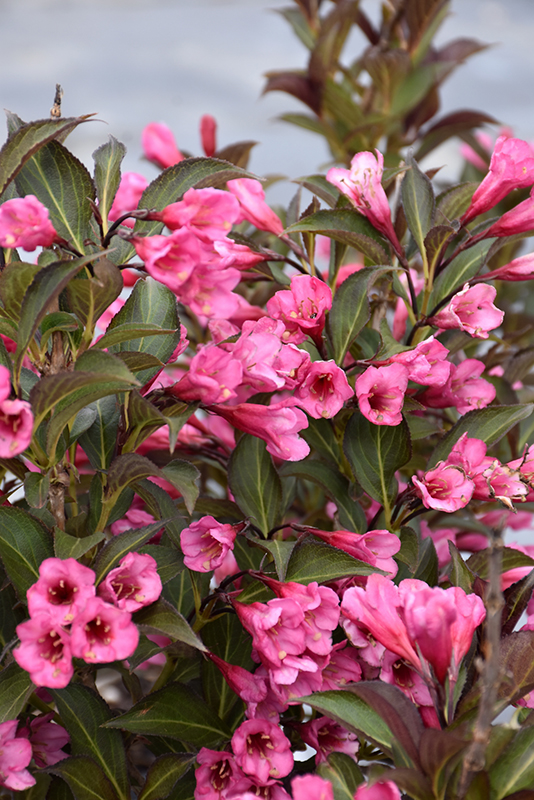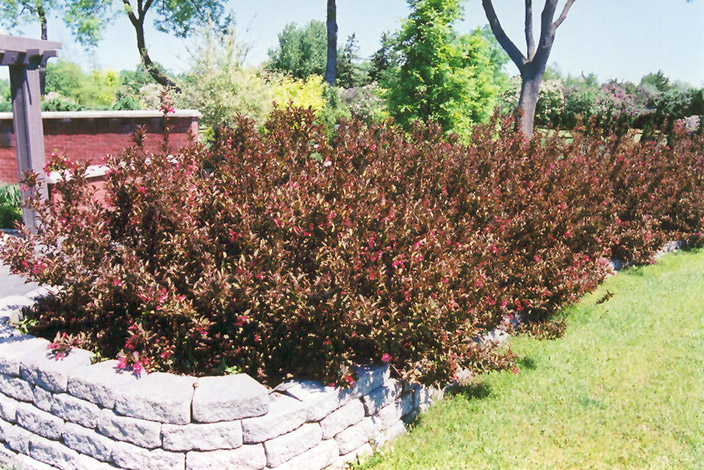Weigela, Wine and Roses Weigela florida 'Alexandra' Height: 5 feet Spread: 5 feet
Sunlight:
Hardiness Zone: 5a Brand: Proven Winners Description: A flamboyant new spring-flowering shrub, featuring rosy-pink trumpet-shaped flowers held over deep wine-colored foliage, attracts hummingbirds; a relatively compact shrub, ideal for garden detail use; Ornamental Features Weigela, Wine and Roses features showy clusters of hot pink trumpet-shaped flowers along the branches in late spring. It has attractive deep purple deciduous foliage. The pointy leaves are highly ornamental and turn an outstanding brick red in the fall. Landscape Attributes Weigela, Wine and Roses is a multi-stemmed deciduous shrub with an upright spreading habit of growth. Its average texture blends into the landscape, but can be balanced by one or two finer or coarser trees or shrubs for an effective composition. This shrub will require occasional maintenance and upkeep, and should only be pruned after flowering to avoid removing any of the current season's flowers. It is a good choice for attracting hummingbirds to your yard. It has no significant negative characteristics. Weigela, Wine and Roses is recommended for the following landscape applications; Planting & Growing Weigela, Wine and Roses will grow to be about 5 feet tall at maturity, with a spread of 5 feet. It tends to fill out right to the ground and therefore doesn't necessarily require facer plants in front, and is suitable for planting under power lines. It grows at a medium rate, and under ideal conditions can be expected to live for approximately 30 years. This shrub does best in full sun to partial shade. It prefers to grow in average to moist conditions, and shouldn't be allowed to dry out. To help this plant achive its best flowering performance, periodically apply a flower-boosting fertilizer from early spring through into the active growing season. It is not particular as to soil type or pH. It is highly tolerant of urban pollution and will even thrive in inner city environments. This is a selected variety of a species not originally from North America.![]()
![]()
![]()
![]()
![]()
![]()
![]()
![]()
![]()
![]()
![]()
![]()
![]()
![]()


